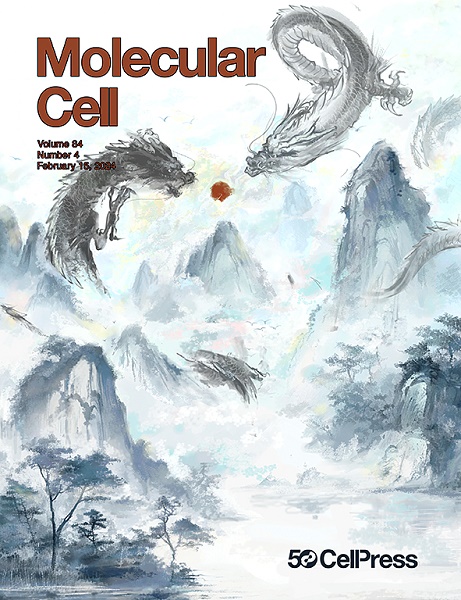线粒体-细胞器在建立分区代谢平衡过程中的相互作用
IF 14.5
1区 生物学
Q1 BIOCHEMISTRY & MOLECULAR BIOLOGY
引用次数: 0
摘要
线粒体通过感知、整合和响应代谢需求,在细胞代谢中起着中心枢纽的作用。这种整合功能是通过细胞器间通讯实现的,包括代谢物、脂质和信号分子的交换。代谢产物交换和途径相互作用的功能多样性是由细胞器膜内的区隔化实现的。膜接触位点(MCSs)对于促进线粒体与细胞器的通信至关重要,它可以创建专门的微结构域,提高代谢物和脂质交换的效率。MCS的动力学,由栓系蛋白调节,适应不断变化的细胞条件。MCSs中线粒体-细胞器相互作用的失调越来越被认为是多种疾病发病的一个促成因素。新兴技术,如先进的显微镜、生物传感器、化学生物学工具和功能基因组学,正在彻底改变我们对细胞间通讯的理解。这些方法为这些相互作用在正常细胞生理和疾病状态中的作用提供了新的见解。本文将重点介绍代谢物转运蛋白、脂质转运蛋白和线粒体-细胞器界面在代谢和转运协调中的作用。本文章由计算机程序翻译,如有差异,请以英文原文为准。
Mitochondria-organelle crosstalk in establishing compartmentalized metabolic homeostasis
Mitochondria serve as central hubs in cellular metabolism by sensing, integrating, and responding to metabolic demands. This integrative function is achieved through inter-organellar communication, involving the exchange of metabolites, lipids, and signaling molecules. The functional diversity of metabolite exchange and pathway interactions is enabled by compartmentalization within organelle membranes. Membrane contact sites (MCSs) are critical for facilitating mitochondria-organelle communication, creating specialized microdomains that enhance the efficiency of metabolite and lipid exchange. MCS dynamics, regulated by tethering proteins, adapt to changing cellular conditions. Dysregulation of mitochondrial-organelle interactions at MCSs is increasingly recognized as a contributing factor in the pathogenesis of multiple diseases. Emerging technologies, such as advanced microscopy, biosensors, chemical-biology tools, and functional genomics, are revolutionizing our understanding of inter-organellar communication. These approaches provide novel insights into the role of these interactions in both normal cellular physiology and disease states. This review will highlight the roles of metabolite transporters, lipid-transfer proteins, and mitochondria-organelle interfaces in the coordination of metabolism and transport.
求助全文
通过发布文献求助,成功后即可免费获取论文全文。
去求助
来源期刊

Molecular Cell
生物-生化与分子生物学
CiteScore
26.00
自引率
3.80%
发文量
389
审稿时长
1 months
期刊介绍:
Molecular Cell is a companion to Cell, the leading journal of biology and the highest-impact journal in the world. Launched in December 1997 and published monthly. Molecular Cell is dedicated to publishing cutting-edge research in molecular biology, focusing on fundamental cellular processes. The journal encompasses a wide range of topics, including DNA replication, recombination, and repair; Chromatin biology and genome organization; Transcription; RNA processing and decay; Non-coding RNA function; Translation; Protein folding, modification, and quality control; Signal transduction pathways; Cell cycle and checkpoints; Cell death; Autophagy; Metabolism.
 求助内容:
求助内容: 应助结果提醒方式:
应助结果提醒方式:


